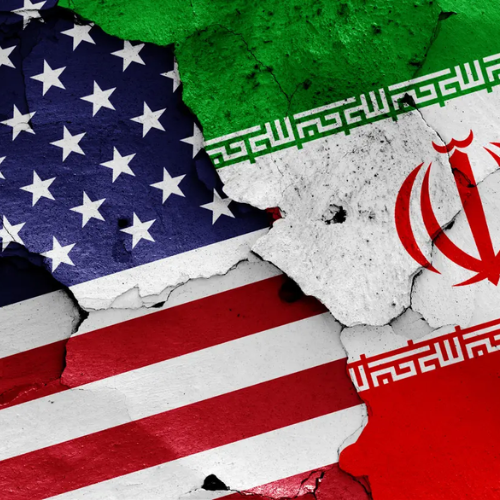Just days before an important meeting between Iran and the United States, the U.S. government announced new sanctions against Iran’s energy industry. These sanctions, announced on Tuesday, targeted a major figure in Iran’s liquified petroleum gas business. Liquified petroleum gas, or LPG, is a fuel that many people use for cooking and heating. This move by the U.S. is part of a pressure plan started a few years ago. The goal of this plan has been to reduce Iran’s oil sales to almost nothing.
Iran was quick to respond. A spokesperson from the country’s Foreign Ministry said that the new sanctions are not a good sign. According to him, these actions show that the United States is not truly interested in having a real and honest conversation. He said the sanctions prove that the U.S. does not have “goodwill” — a word that means the desire to be friendly and fair. He also said that by targeting Iran’s economy like this, the U.S. is showing it does not take the talks seriously.
This all comes just before both countries are set to meet in Oman. These talks are aimed at finding a way forward on Iran’s nuclear program, which has caused tension between Iran and the U.S. for many years. The spokesperson added that the timing of these sanctions — just before the talks — makes them even more concerning.
Crackdown: U.S. Sanctions Iranian Oil Tycoon Emamjomeh for Secret Global Fuel Network
Iran Says Sanctions Contradict U.S. Message of Dialogue
Iran’s leaders are saying that the U.S. is sending mixed signals. On one hand, American officials say they want to sit down and talk. On the other hand, they are placing new limits on Iran’s economy. Iranian officials believe that this kind of behavior doesn’t match up. “You can’t say you want peace and then take actions that hurt us,” was the main message from Iran’s side.
The Iranian spokesperson explained that sanctions like these hurt not only large companies but also the everyday people in Iran. By stopping Iran from selling important energy products, these restrictions reduce the country’s income. This can make it harder to fund things like schools, hospitals, and public services. The spokesperson said the U.S. should stop using sanctions as a tool and focus on real conversations instead.
While Iran says it still wants to talk, these new penalties have made it harder to trust what the U.S. is saying. According to Iran, a serious effort to solve problems should be based on respect and fairness. They say it’s hard to believe that the U.S. is being honest about wanting peace when it keeps putting more pressure on Iran’s economy.
Iran Keeps Focus on Nuclear Program and Sanctions in US Talks
Hopes for Progress Despite a Rocky Start
Despite the rising tensions, meetings between the two countries are still scheduled to happen this weekend in Oman. These meetings are important because they could help reduce the years-long conflict over Iran’s nuclear program. Both top officials and technical experts are expected to join the talks.
While traveling in China this week, Iran’s foreign minister said it’s too early to say how the talks will go. He did say that there has been some progress and that both sides are trying to move in a positive direction. But he also warned that it won’t be easy. He explained that the U.S. needs to avoid making demands that are too harsh or impossible to meet.
Even with the recent sanctions, Iran is still preparing to join the talks. They say they are “cautiously optimistic” — meaning they have some hope but are still careful not to expect too much. Iran’s foreign minister said that if the U.S. keeps its promises and doesn’t ask for too much, there might still be a chance to make a good deal.
As of now, no agreement has been made, and the situation remains tense. The talks in Oman could be a turning point — but the latest U.S. sanctions have already made the road ahead more difficult.


